Lost Records: Bloom & Rage Tape Two is a mess in all the ways I love
Rhianne Ward
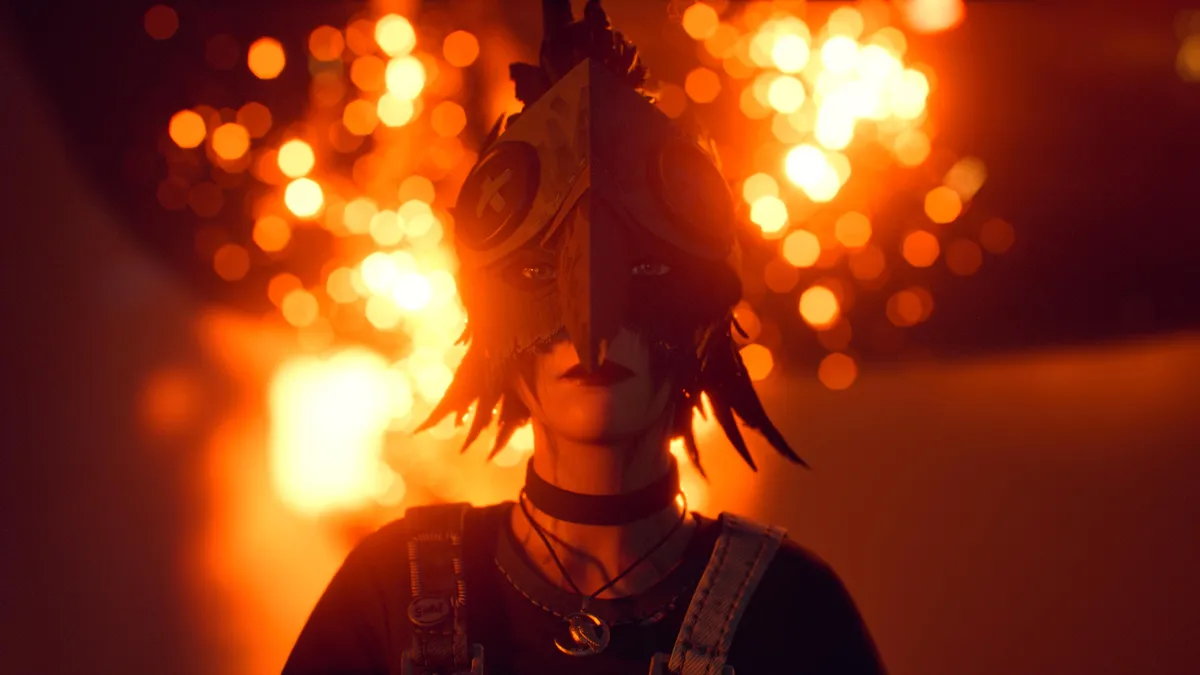
Lost Records: Bloom & Rage - Tape 2 is a tricky game. It doesn't round out with easy answers or cathartic conclusions. It is, intentionally it seems, resistant to the idea that events as deeply traumatic as that which we we're left with by Tape 1’s conclusion can be simply handwaved by convenient plot contrivances. In many ways, this second half to developer Don't Nod’s latest title is a messy experience. There are notable moments to pick at - helping a friend work through an panic attack, or enduring an awkward hangout where unspoken things hang agonisingly in the air - but for every one of those, there's a bizarre stealth segment, or a kinda clumsy chase sequence. Tape 2 is a mishmash of undercooked ideas and strange structuring, and by the end, I sort of loved it for that.
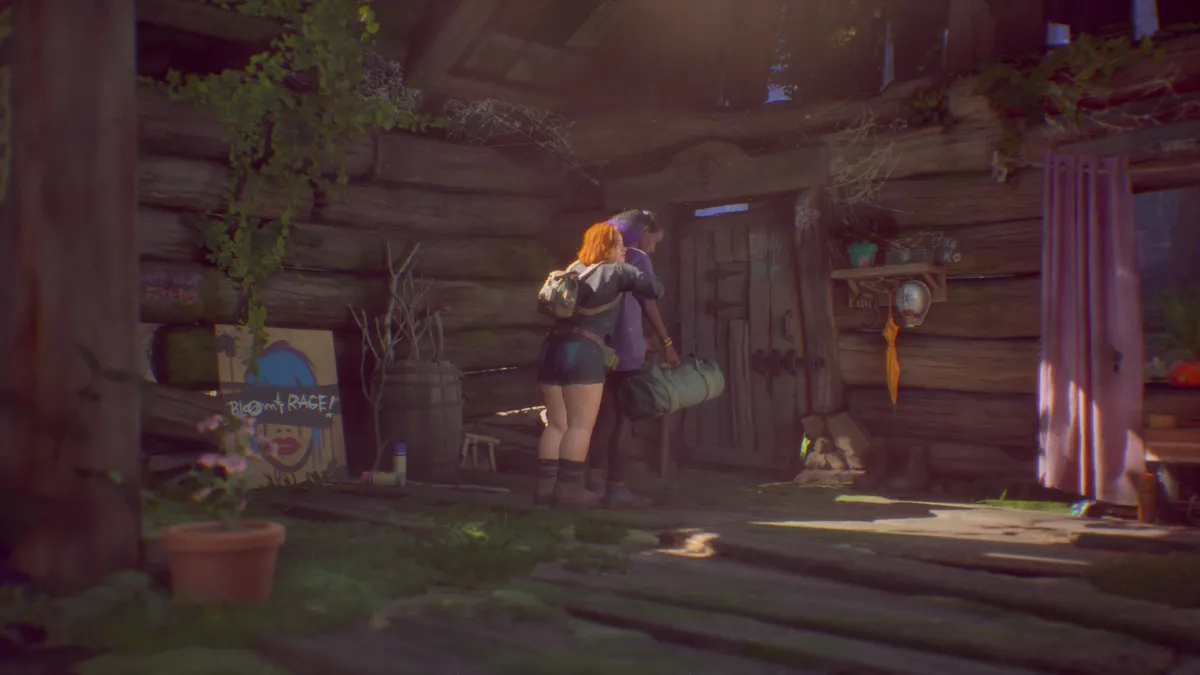
I spent most of my playtime in Tape Two in damage control mode. After a dramatic first half conclusion left us with an explosive cliffhanger, my head thrummed with possibilities. Where could this story possibly go from here? I had my theories, and hilariously, none of them really came true. I was also filled with this dread that I couldn't shake. I had become so invested in the wellbeing of these gay little musketeers, and I was prepared to do anything to keep it together.
There's a personal angle to this for me, as there always is. I see an awful lot of myself in Swann. She's pretty quiet and a bit weird, but her sincerity hits like a ray of blinding light. In many ways, she reminds me of my high school self - a perpetual loner who kinda stumbled into a group of friends who somehow love her unconditionally - but also, she's a version of myself I wanted to be. She has her weird little interests, and isn't afraid to drop a delightfully unironic “jeez louise” when the need arises. She's so corny, and I love her, and I wish I was like that too when I was a kid. I think I used to be, but it faded over time.
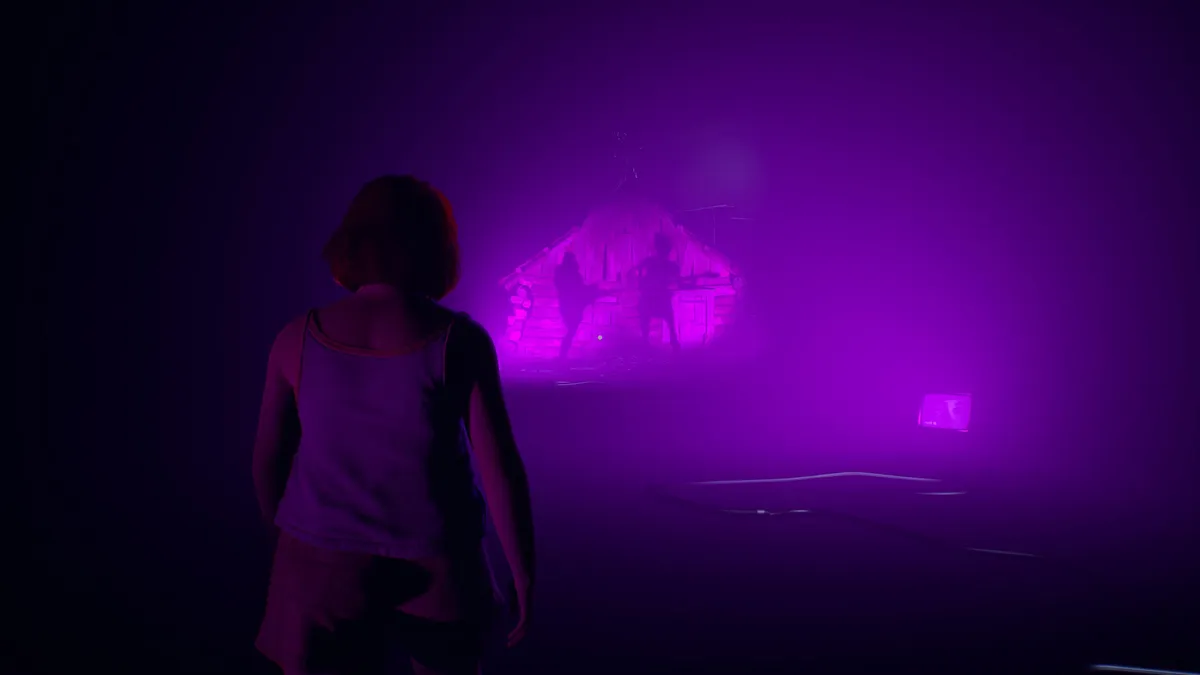
As such, Tape 2’s Swann is the other side of that coin. Of course, her character is malleable to a certain extent, so you can choose how you want to express yourself through her, but I ended up attempting to be the glue that holds the gang together. I took it upon myself to act as a go-between for feuding friends, and mend those bridges, which turned out to be a very tricky line to toe, just as I am aware it is in real life. Whenever two of your friends fall out - or, worse yet, become passive aggressive with each other and don't resolve their issue - it is so stressful to manage. You want to be there for both parties, but there is an unfortunate truth that one of them is probably more in the right than the other, but you love them both so you still try and get them to work it out, and at some point the guilt sets in that you're talking to one person behind the other’s back and vice versa, and you feel like a bad friend for that but you hold out hope that they'll resolve whatever situation they're in and be friends again and all this emotional labour will finally bear fruit! To cut a long story short, I get how Swann feels in this specific moment.
I think it speaks to the strength of the game's writing that the relationships here feel so tangible. That being said, I think enough of these moments are left implied rather than spoken that room is left over for interpretation. What I ultimately take away from Lost Records isn't necessarily going to be universal, and that demonstrates a game experience designed to be deeply personal. I spoke about that a little in my Tape 1 review, and that feeling has only been intensified here, given the branching nature of the narrative. What happens, how it happens, who comes with you on your journey and who stays behind… it's all down to how you have decided to interact with this world and its characters. Relationships feel incredibly dynamic, and while I can't say the ending I got was an especially cheery one, it was certainly a truthful one, and reflected well my overall experience. Nothing here feels cheap or unearned; it simply is.
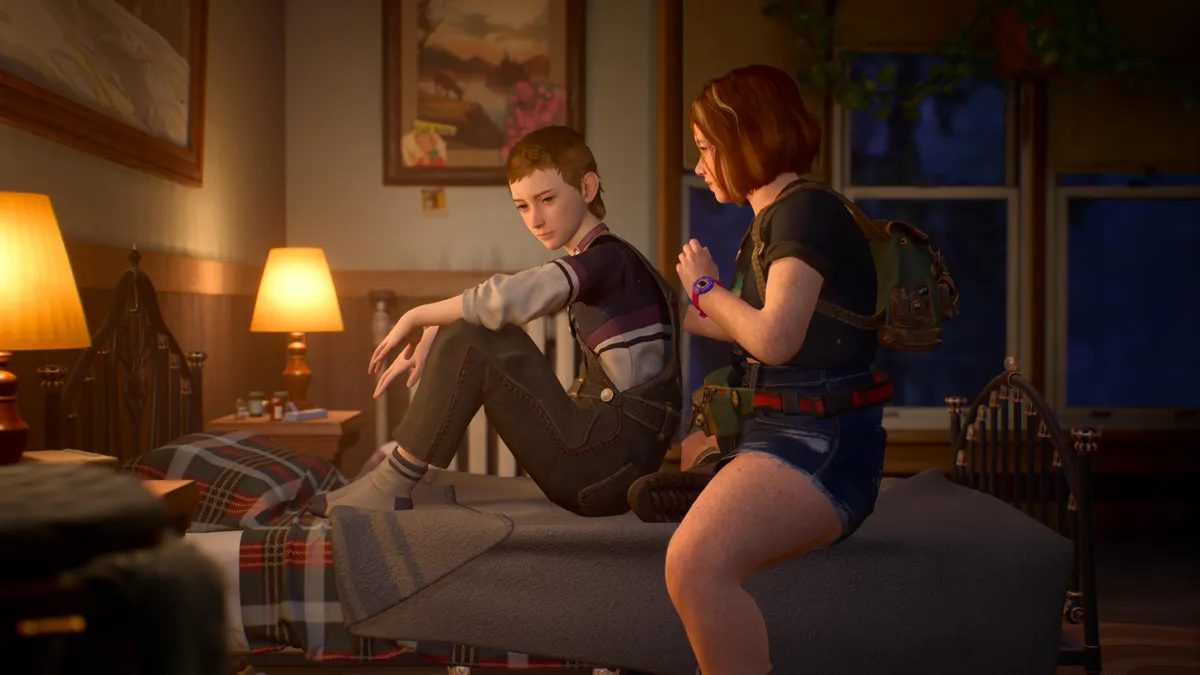
That's pretty much all I have to say regarding Tape 2 without dipping into the realm of spoilers, so I'm going to do that now. If you are intrigued by anything I've written, here or in my last review, then I'd urge you to give Lost Records a try with fresh eyes. It's a really special, and potentially divisive, game and it deserves to be experienced by everyone, so please go do that. Then, when you're done with that, maybe consider checking back in here, if you're feeling extra nice 👉👈
So here's your warning! Spoilers ahead! I'll section this part off so you can skip to the conclusion if you like.
This game has a surprising number of endings, or rather, it would be more accurate to describe them as variations on a couple broader ending types. The ending I got left me feeling quite bittersweet. Hilariously, when I went to rewatch this ending on YouTube to remind myself of it, the video I saw described it as the worst ending, and in a sense, I get that. Despite her best efforts, Swann is unable to convince Nora or Autumn to stick around, leaving her alone to confront the mystery of the package Kat left behind after her death. It's a sombre experience to dig through that box of memories, made more so by having nobody to share it with.
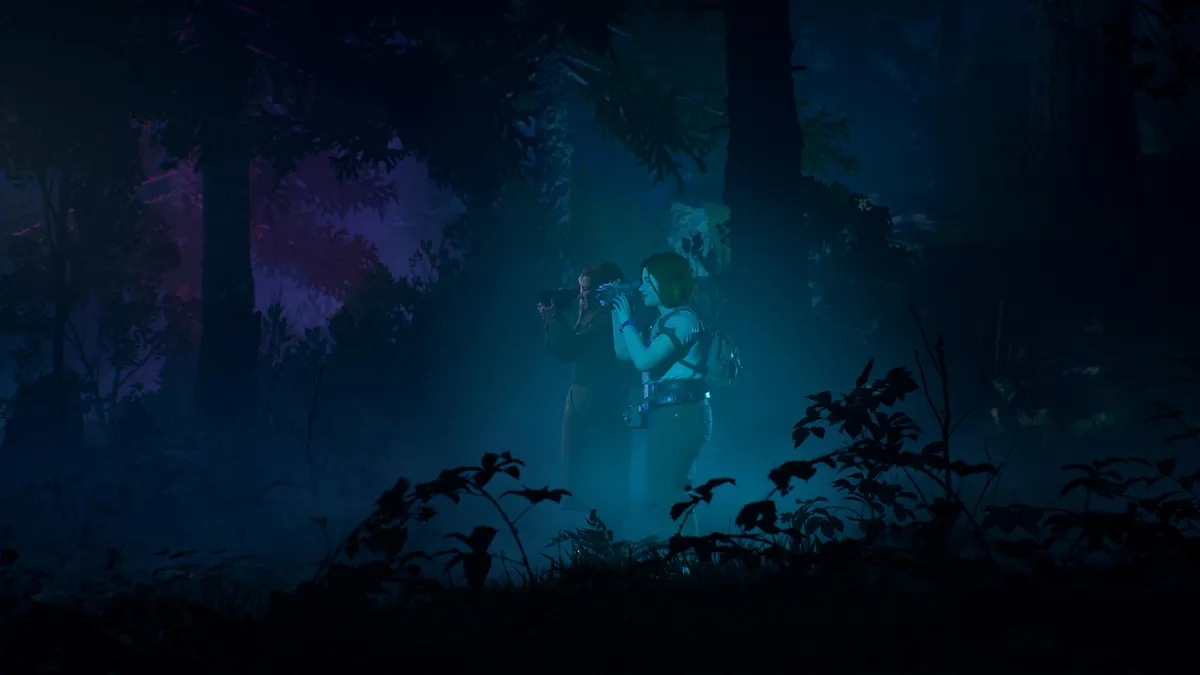
Swann eventually leaves the bar she's been in the whole game, alone, and heads to the cabin where she and her friends hung out so many times. It's abandoned, of course; utterly destroyed by the fire that took place so long ago. It feels like a place trapped in time. Upon that thought, ghostly apparitions of Kat, Autumn and Nora appear, and so does a younger Swann, holding up her video camera to record them. Older Swann pulls out her camera too, and the pair stand side by side, recording their friends like nothing ever changed. Swann looks on, smiles, then turns to face the forest. The Abyss beckons.
There's something deeply saddening about this ending. It suggests a version of Swann who, through the course of the game, becomes unable to let go of her past. Despite everything, the trauma delivered by Kat’s untimely passing was simply too much to overcome, and Swann is left alone, save the ghosts of her childhood. I watched the other endings too, and mourned my inability to give Swann the kind of community she so desperately needed. However, at the same time, there is a form of closure here. A decades-long mystery, buried and forgotten by necessity, finally unearthed. If nothing else, I was glad to see at least one of the remaining girls had the strength to lay it to rest.
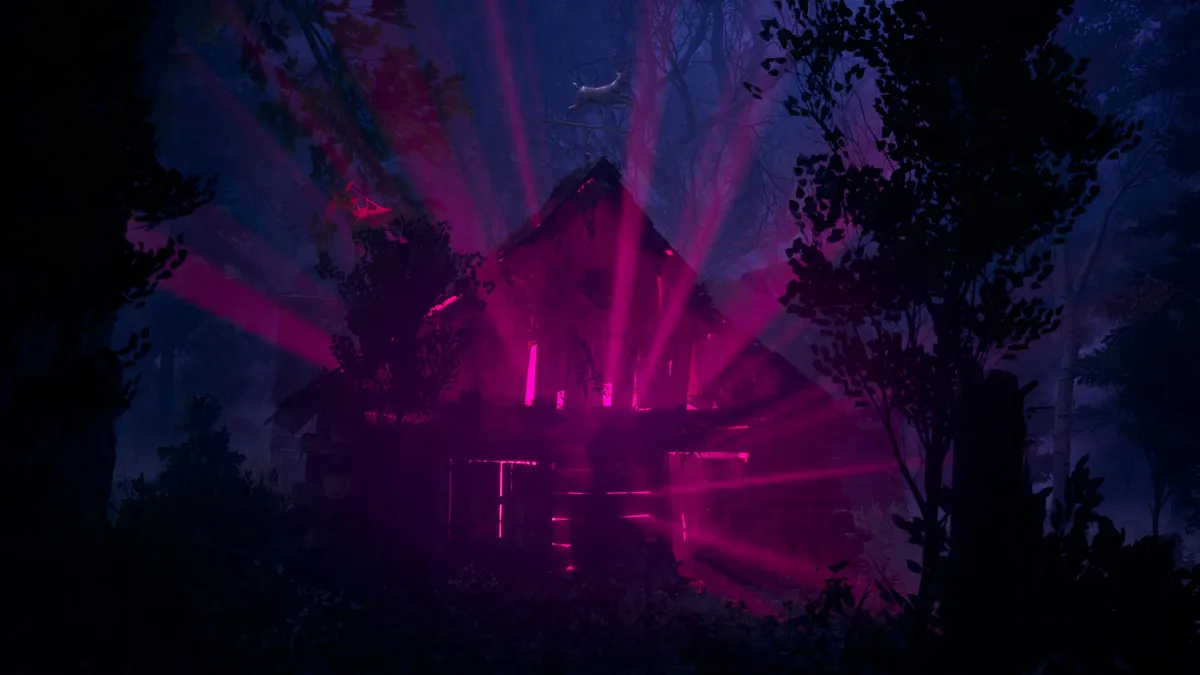
I was surprised at how nebulous the Abyss ended up being as an entity within this story. Anyone familiar with cosmic horror, or even the concept of genies in lamps, would expect a setup like this to end one way. The friend group has their desires fulfilled, but at a cost. That's how you would expect this story to go. However, this isn't exactly the case. I think the Abyss is more so designed as a metaphor for the power of a moment in time. In hindsight, not an awful lot happens throughout the game that could be considered magical or unusual. Instead, you get a very grounded portrayal of teenage friendship, and the subsequent fallout when one of them dies. The Abyss, then, exists to emphasise the power of those specific circumstances, by capturing it and holding it in stasis. The main effect it has is to cause the remaining friends to forget about their friendships and experiences, for their safety. However, as shown by the rest of the game, the impact of that moment in time cannot be so easily removed from themselves. The mind forgets, but the soul remembers.
The Abyss is stagnation. It's the desire to remain in a place in time forever, despite the impossibility of that. Rather than allow it to grow beyond itself, the Abyss lets that moment stay perpetually in place, while the people who valued it leave it behind. It's an acknowledgement that things, no matter what, cannot be the same again. The Abyss offers them an escape from that pain. The danger, then, is in the lack of closure. Swann, Nora and Autumn cannot move on. They come to each other decades later, seemingly different than their past selves, but after some time together are clearly the same. They never got the chance to grow. In my game, Nora and Autumn likely never will. It's the unfortunate reality of things.
HERE BE THE END OF SPOILERS, PLEASE ENJOY THE REST
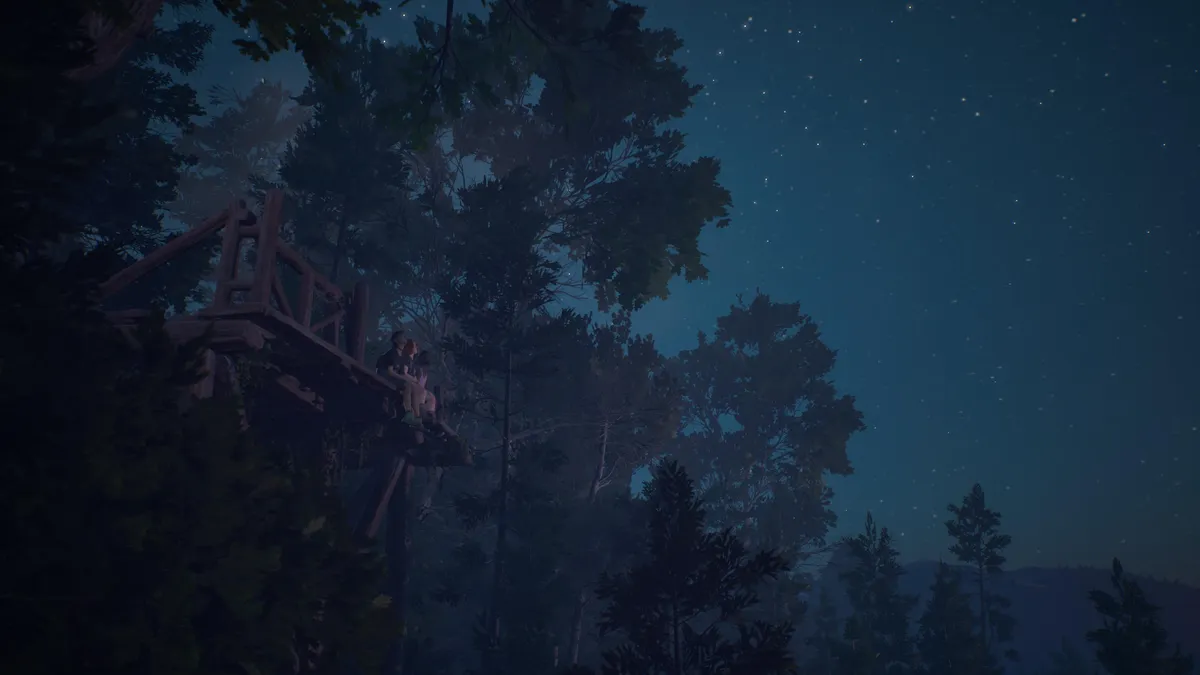
Lost Records is messy, so a similarly messy review/analysis feels appropriate. It doesn't provide clear answers or moralise on the right or wrong of things. It simply observes that in difficult situations like these, where one must confront painful memories, it's better done with friends. The feeling I got by the end was one of inevitability. Every moment in our lives is cemented here forever. Choosing to ignore the difficult ones can provide short term relief, but eventually, they will return. The only way to move forward, however imperfect a solution it may feel, is to embrace the past as part of your present, and let both inform your future, whatever that means to you.
I don't know. That's what I took away from it, at least. Even now, writing this almost six months on from when I played it, I'm not sure what to make of the experience. In general, I love games that linger. A small amount of incompleteness or ambiguity is good, I think. Life is not a perfectly packaged thing, so why should art be? Lost Records hangs in my mind like a ghost from my past, and it likely will for years to come. In a way, that's exciting. It means the story isn't done, nor will it ever be.